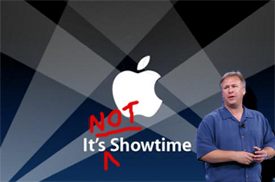 It’s been a possibility for a while, and now it’s a reality: AMD, the perennial number-two CPU company to Intel and one of the few chip companies that both designs and manufactures processors, plans to break itself up. The company behind Phenom, Athlon, Opteron, and other CPUs will become two companies: one that designs chips, and one that makes them. The design company will end up partially owned by Mubadala, a company which is owned by Abu Dhabi; ATIC, another company owned by Abu Dhabi, will own the majority of the manuacturing company. Both of those Middle Eastern investments will provide an infusion of cash which is designed to help AMD with its next-generation chips and therefore its overall competitiveness with Intel.
It’s been a possibility for a while, and now it’s a reality: AMD, the perennial number-two CPU company to Intel and one of the few chip companies that both designs and manufactures processors, plans to break itself up. The company behind Phenom, Athlon, Opteron, and other CPUs will become two companies: one that designs chips, and one that makes them. The design company will end up partially owned by Mubadala, a company which is owned by Abu Dhabi; ATIC, another company owned by Abu Dhabi, will own the majority of the manuacturing company. Both of those Middle Eastern investments will provide an infusion of cash which is designed to help AMD with its next-generation chips and therefore its overall competitiveness with Intel.
Emotionally, the move may be a big deal for AMD, which has spent decades taking on Intel by, essentially, trying to be Intel. But nearly everyone else involved in the designing and building of processors has decided that financially, it makes sense to separate the building part–which involves massive, massively expensive plants–from the designing.
I’m neither an economist nor an expert on chip manufacturing, so I can’t judge the deal on its merits. But if it helps the two new companies produce more advanced chips more quickly, it’s a good thing for consumers. And, of course, a good thing for AMD, which has struggled to stay even vaguely competitive with the products from its much larger competitor in recent years. (The golden age of the Intel-AMD wars were back around the turn of the century, when AMD rolled out the excellent original Athlon CPU, giving every PC user a reason to consider an AMD-powered computer–and giving Intel a scare that ensured it wouldn’t spend the next few years resting on its technological laurels.)
The chip wars matter to most consumers only because they’re a driver of healthy competition that results in faster, cheaper CPUs that power faster, cheaper computers and other devices. For that reason, I’m happiest when AMD is at its most competitive versus Intel–and hope that this corporate breakup makes as much sense as AMD thinks it will.
 Mac desktops aside, fairly quiet:
Mac desktops aside, fairly quiet:

 It’s been a possibility for a while, and now it’s a reality: AMD, the perennial number-two CPU company to Intel and one of the few chip companies that both designs and manufactures processors, plans to break itself up. The company behind Phenom, Athlon, Opteron, and other CPUs will become two companies:
It’s been a possibility for a while, and now it’s a reality: AMD, the perennial number-two CPU company to Intel and one of the few chip companies that both designs and manufactures processors, plans to break itself up. The company behind Phenom, Athlon, Opteron, and other CPUs will become two companies:  Some Apple rumors make the T-List because they sound plausible. Others make it because they don’t. Item #1 today would be fall into that second category–which doesn’t mean it’s not true, of course…
Some Apple rumors make the T-List because they sound plausible. Others make it because they don’t. Item #1 today would be fall into that second category–which doesn’t mean it’s not true, of course…